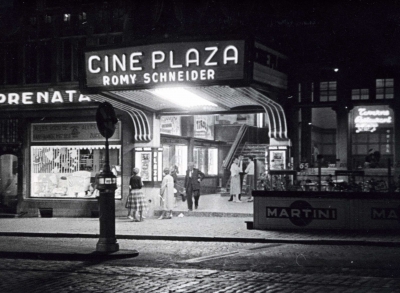The 'Enlightened' City

Researcher(s) (CIMS)
Researcher(s) (other)
Gert Willems (UA)
Kathleen Lotze (UA)
Supervisors (CIMS)
Supervisors (other)
Philippe Meers (UA)
Funded by
FWO-Vlaanderen
Presentation
Film culture today is the result of a historical process in which movie theatres and film, through economical and ideological lines, became prominent parts of the cultural and social life. This media historic research project focuses on the interaction between the pilarization, the commercial imperative and the concrete film experience. The project works on several crucial items: the exploitation of the movie and image industry vs. the experience, commercial vs. ideological imperatives, top-down vs. bottom-up forces, public vs. private space and media experience. The project has several phases. First, we work on a detailed map of film exhibition venues in Flanders and Brussels (1918-2005) based on research in archives. The essential data is stored in a database which can be consulted for further research. In a second phase we research the institutional developments, geographical location and programming trends of some case studies in Flanders such as Ghent, Antwerp and Mechelen. In a third part of the project we research the concrete film experience: the role of cinema in everyday life, the importance of context of movie-going and the influence of pilarisation are questioned in in-depth interviews. The project is complemented with research done by students and in line with the central objective the researchers work out side projects with, for instance, the heritage foundations of Mechelen and Bruges, and the Museum of Photography of Antwerp. This research project wants to lay down the foundations for future research about the interaction of films, screen culture and media audiences.